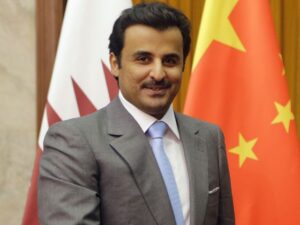
President of Ukraine Volodymyr Zelensky discussed with Emir of Qatar Tamim bin Hamad Al Thani further joint steps at the UN and other international platforms.
“I had a conversation with the Emir of Qatar, Sheikh Tamim bin Hamad Al Thani. He thanked for the strong support for the sovereignty and territorial integrity of Ukraine. We discussed further joint steps at the UN and other international platforms,” Zelensky wrote on Twitter.

The number of international travel from January to July 2022 increased to 474 million, which is almost three times more than in the same period last year, according to the UN World Tourism Organization (UNWTO).
“The number of international travel almost tripled from January to July 2022 (plus 172%) compared to the same period in 2021 to 474 million. This means that the industry has recovered 57% from pre-pandemic levels. A sustained recovery in international tourism is being fueled by pent-up travel demand, as well as the lifting or easing of anti-COVID restrictions,” the organization explained.
As noted in the UNWTO, as of mid-September, anti-COVID restrictions ceased to operate in 86 countries around the world.
According to the organization, 207 million international trips were made in June and July 2022, twice as many as in the same period last year. The same months account for 44% of the total number of all arrivals in seven months. Most of the trips were made in Europe – 309 million.
According to the UNWTO, international tourism in Europe and the Middle East is recovering at the fastest pace. From January to July 2022, the number of trips reached 74% and 76% of the 2019 levels, respectively.
“In seven months, the number of international trips in Europe increased by 190% compared to the same period in 2021. This is due to high demand for intra-regional travel, as well as an increase in the number of tourists from the United States. In the Middle East, in January-July 2022, the number of international arrivals almost quadrupled: in July, the number of travels exceeded the pre-pandemic level by 3%, primarily due to pilgrimages to Saudi Arabia,” the organization noted.
As for the Americas, international tourism there recovered to 65% and 60% of the 2019 level and grew by 103% and 171%, respectively, compared to January-July last year.
In the Asia-Pacific region, the number of international travel is still significantly lower (down 86%) compared to 2019. However, compared to 2021, the number of trips increased by 165%.
According to the UNWTO, some sub-regions have been able to restore international travel to 70-85% of pre-pandemic levels. Thus, the Southern Mediterranean, Europe lag behind by 15% from the pre-pandemic 2019, the Caribbean – by 18%, Central America – by 20%, Western and Northern Europe – by 26% and 27%, respectively.
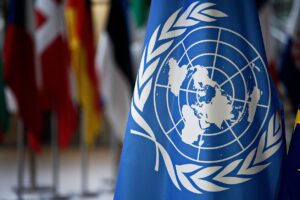
The Cabinet of Ministers of Ukraine has agreed on the signing of an agreement between the government of the country and the Food and Agriculture Organization of the United Nations (FAO) on the establishment of a project office in the country to provide it with technical and humanitarian assistance in the face of Russian military aggression.
As reported on the website of the Ministry of Economy of Ukraine on Tuesday, the Cabinet of Ministers on September 27 authorized First Vice Prime Minister – Minister of Economy Yulia Sviridenko to sign this agreement.
“Ukraine has long and fruitfully cooperated with the FAO, an organization whose mission is to fight hunger around the world. Our state has been and remains the breadbasket of Europe and the world, but because of the war unleashed by Russia, we already need help. FAO provides it, in in particular, by implementing jointly with the governments of the partner countries programs to support Ukrainian farmers,” Sviridenko was quoted as saying by the ministry.
It is specified that with the start of a full-scale invasion of the Russian Federation into Ukraine, FAO has updated a rapid response plan to help Ukrainian small and medium-sized farmers and agricultural producers. As of mid-August, the organization provided emergency assistance in the form of seed material and cash for 80,000 people in 13 regions of Ukraine.
In addition, FAO and the Government of Ukraine, with the financial support of Japan and Canada, are implementing projects to restore grain storage capacities in the warring country, which provide for the supply of equipment for loading and unloading grain, modular storage containers, etc. to Ukrainian farmers from 10 regions.
According to the Ministry of Economy, the implementation of a rapid response plan and a strategy to increase grain storage capacity in Ukraine will cost FAO and its partners a total of $180.4 million.
“The adoption of the Agreement and the creation of an FAO office in Ukraine will allow raising cooperation to a higher level … We expect closer coordination in matters of grain exports. Ukraine will continue to help countries where the issue of food is acute. In the future, cooperation will contribute to the growth of Ukrainian exports and the achievement of our the goal is to create an export-oriented economy with high added value,” Sviridenko summed up in the message of the Ministry of Economy.
FAO is a UN agency dedicated to ensuring world food security, improving nutrition and living standards in its member countries. The organization consists of 194 countries, Ukraine joined it in 2003.
FAO, food organization, KYIV, OFFICE, UN
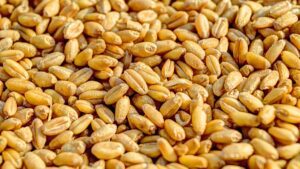
The United States of America will provide the UN World Food Program (WFP) with $68 million to buy wheat in Ukraine and then send it to countries most vulnerable in terms of food security, US Secretary of State Antony Blinken has said.
“The United States will contribute $68 million to the World Food Program to purchase Ukrainian wheat to address the acute global food crisis. We are committed to maintaining global food security for the most vulnerable and urge all countries to follow suit,” Blinken said on Twitter on Wednesday.
As reported, on June 28, the Cabinet of Ministers of Ukraine approved a draft agreement with WFP on the resumption of the work of its office in the country, which will allow the organization, among other things, to purchase agricultural products from Ukrainian companies for the implementation of international humanitarian programs.
WFP is expected to participate in the purchase of agricultural and food products from Ukrainian companies for the needs of UN international humanitarian projects.
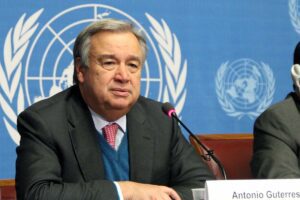
On Thursday, August 18, UN Secretary General António Guterres will take part in a trilateral meeting in Lviv with Turkish President Recep Tayyip Erdogan and Ukrainian President Volodymyr Zelensky, Deputy Secretary General Stefan Dujjarik said on Tuesday.
“The UN Secretary General will arrive in Lviv on Thursday for a trilateral meeting with Turkish President Erdogan and Ukrainian leader Zelensky,” he said.
“The next day he will go to Odessa and visit the local port, one of the three busiest ports on the Black Sea,” he said.
Duzhzharik added that the UN expects a bilateral meeting between Guterres and Zelensky.
In Istanbul on July 22, with the participation of the UN, Russia, Turkey and Ukraine, two documents were signed on the creation of a corridor for the export of grain from three ports on Ukrainian territory – Chornomorsk, Odessa and Yuzhny.
Earlier, the “Club of Experts” released an analysis of the main events that should take place on August 15-21 in Ukraine and the world. For more video review, see the link
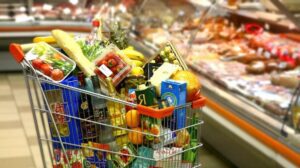
World food prices in July decreased by 8.6% compared to June. This is the sharpest decline since October 2008, according to the FAO (Food and Agriculture Organization of the United Nations).
The decline continues for the fourth month in a row after the historical maximum recorded in March.
The FAO Food Price Index stood at 140.9 in July, down 8.6% from its June level. However, it is still 13.1% higher than in July last year. “The fall in the index in July was the sharpest since October 2008 and was driven by large declines in vegetable oil and cereals price indices and somewhat smaller declines in sugar, dairy and meat price indices,” the FAO said in a survey.
The grain price index in July decreased by 11.5% compared to June, but remained 16.6% higher than in July 2021. In part, prices fell in July due to an agreement reached between Ukraine, Russia, Turkey and the UN to resume grain exports from Ukraine. In addition, the start of harvesting in the Northern Hemisphere contributed to lower prices. At the same time, international wheat prices are still 24.8% higher than in July last year.
“International prices for feed grains also continue to show a downward trend for the fourth month in a row: they fell by 11.2% compared to June, but remain 12.1% higher than last year. The main reason for the fall in world prices for corn by 10, 7% was the conclusion of an agreement to unblock Ukrainian ports. The seasonal increase in supply in Argentina and Brazil also contributed to the decline in prices, where harvesting is ahead of last year’s figures,” the report says.
The price index for vegetable oils in July fell by 19.2%, to its lowest level in the last 10 months. “Such a sharp drop was caused by a decline in world prices for palm, soybean, rapeseed and sunflower oils,” the document explains. Moreover, despite the ongoing uncertainty with logistics in the Black Sea region, international prices for sunflower oil have significantly decreased against the backdrop of a reduction in import demand in the world as a whole. The decrease in world quotations of vegetable oils was also facilitated by the reduction in prices for crude oil.
The price index for dairy products last month decreased by 2.5% compared to June, and increased by 25.4% compared to July last year. International quotations of skimmed milk powder, as well as butter and whole milk powder, fell the most, due to weak market activity in Europe due to the onset of the summer holiday period, FAO experts explained. At the same time, world cheese prices remained stable, as strong domestic sales in European tourist destinations offset weak import demand in international markets.
The Meat Price Index fell 0.5% in July, the first drop after a continuous six-month rise.
The sugar price index in July decreased by 3.8% compared to June. The decline continues for the third month in a row and reached the lowest value in the last five months, the review explains. “International sugar quotations were affected by concerns about the expected further slowdown in the global economy in 2022 and the resulting decrease in demand. In addition, the weakening of the exchange rate of the Brazilian real against the US dollar and the reduction in ethanol prices, which led to an increase in the volume of sugar production in Brazil in the first half of July compared to previous forecasts. Prices were also affected by favorable forecasts for sugar production in India and a possible increase in its exports. However, concerns about the impact of prolonged hot and dry weather on crops in the European Union prevented prices from dropping even lower, the document says.
The FAO Food Price Index is a weighted average that tracks international price movements for five major food commodity groups.